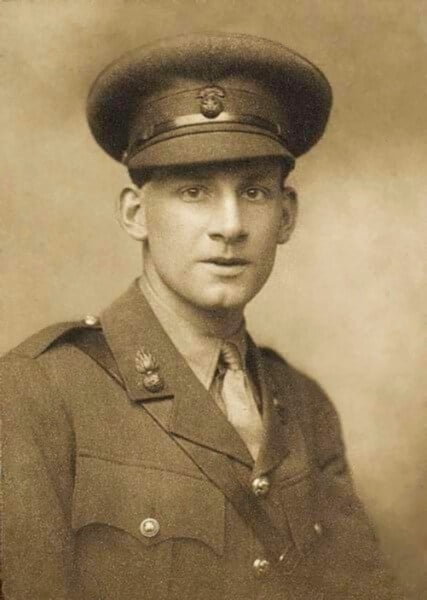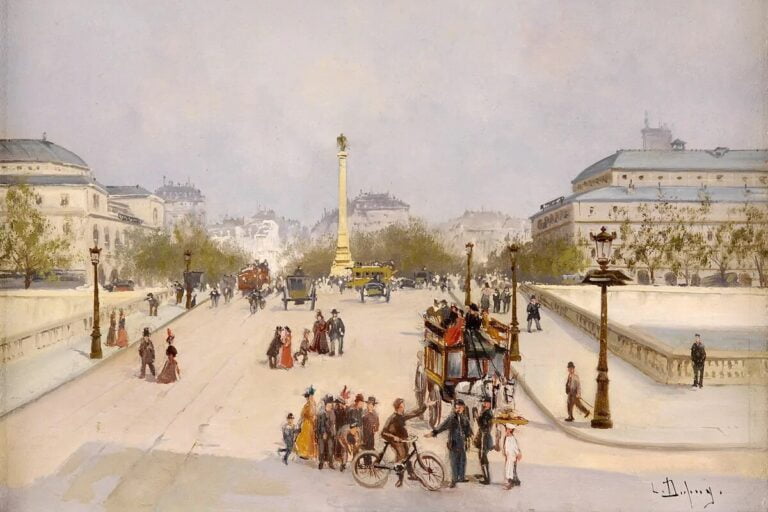At the time of writing, there are countless armed conflicts around the globe, such as the Syrian civil war, Russia’s invasion of Ukraine, and the violent power struggle in Sudan. Despite the horrors of the early 20th century, humanity has still not learned its lesson. The world is at war – and sadly this may never change. For someone who has only known peace, it is difficult to understand what it means to fear for your life, to lose your loved ones, or to lose your self-worth as a result of torture and abuse. But when I read the poem To Any Dead Officer by Siegfried Sassoon (1886-1967), who had fought on the Western Front in the Great War, I got some sense of what it must be like.
In the poem, Sassoon addresses a dead officer who has lost his life on the battlefield. He evokes a vivid image of him as if he were still alive, remembering the way he looked and the things he said. His friend had longed for nothing but for home, to lead a simple life in peace. Now he lies beyond the wire, with no chance of ever coming back. The man he knew so well had died ingloriously in a dud-attack. He was left alone in no man’s land, with a shell-hole as his grave. His body was left to rot, only the memory of him to save. Sassoon ends the poem lamenting his fallen friend, breaking down in tears, because his friend who wanted nothing but to live had died in vain.
Once one realizes how indiscriminate, unjust, and absurd war is, one can no longer reasonably be in favour of it. Only the politicians, who have never experienced war themselves, as Sassoon concludes, can argue that war is worth waging, that the ends justify the means. There is no glory in war. There is nothing to be won. If only we could use words rather than weapons. If only we would choose empathy over enmity. If only we would understand that war is never the answer.
Well, how are things in Heaven? I wish you’d say,
Because I’d like to know that you’re all right.
Tell me, have you found everlasting day,
Or been sucked in by everlasting night?
For when I shut my eyes your face shows plain;
I hear you make some cheery old remark—
I can rebuild you in my brain,
Though you’ve gone out patrolling in the dark.You hated tours of trenches; you were proud
Of nothing more than having good years to spend;
Longed to get home and join the careless crowd
Of chaps who work in peace with Time for friend.
That’s all washed out now. You’re beyond the wire:
No earthly chance can send you crawling back;
You’ve finished with machine-gun fire—
Knocked over in a hopeless dud-attack.Somehow I always thought you’d get done in,
Because you were so desperate keen to live:
You were all out to try and save your skin,
Well knowing how much the world had got to give.
You joked at shells and talked the usual “shop,”
Stuck to your dirty job and did it fine:
With “Jesus Christ! when will it stop?
Three years … It’s hell unless we break their line.”So when they told me you’d been left for dead
I wouldn’t believe them, feeling it must be true.
Next week the bloody Roll of Honour said
“Wounded and missing”—(That’s the thing to do
When lads are left in shell-holes dying slow,
With nothing but blank sky and wounds that ache,
Moaning for water till they know
It’s night, and then it’s not worth while to wake!)Good-bye, old lad! Remember me to God,
Siegfried Loraine Sassoon
And tell Him that our politicians swear
They won’t give in till Prussian Rule’s been trod
Under the Heel of England … Are you there? …
Yes … and the war won’t end for at least two years;
But we’ve got stacks of men … I’m blind with tears,
Staring into the dark. Cheero!
I wish they’d killed you in a decent show.




